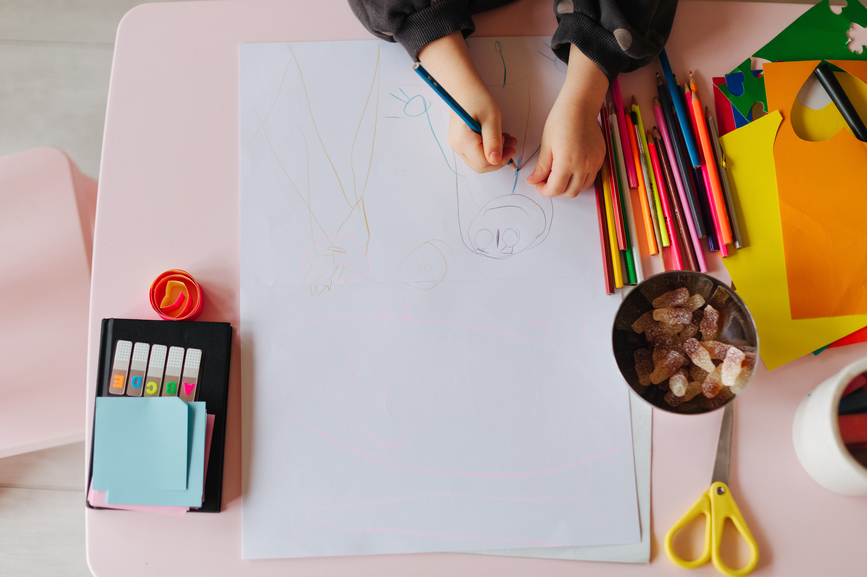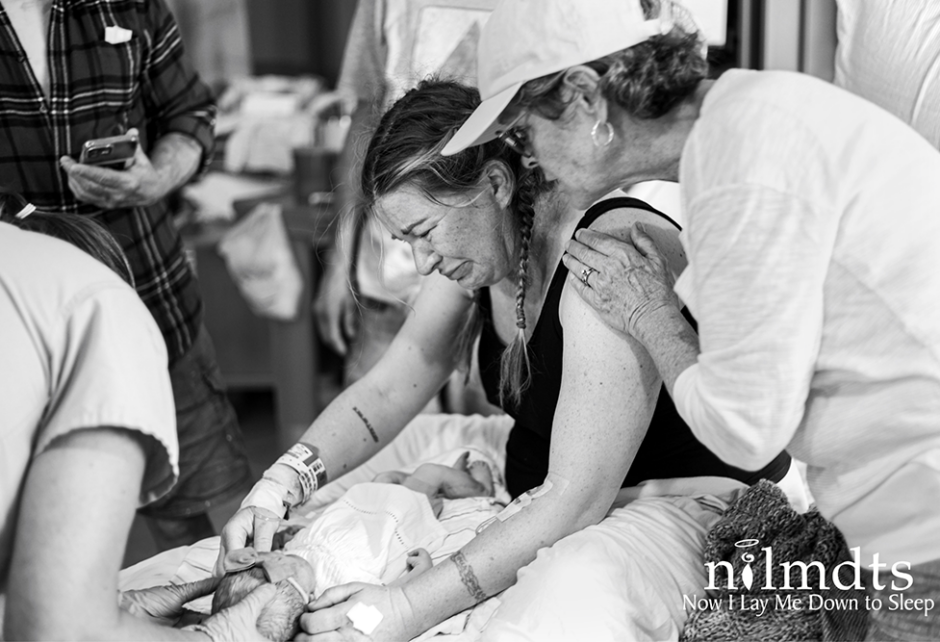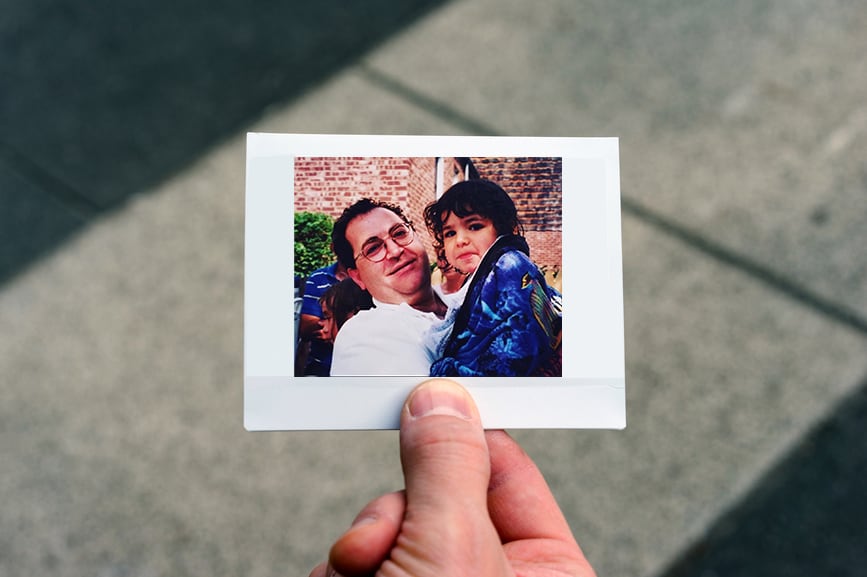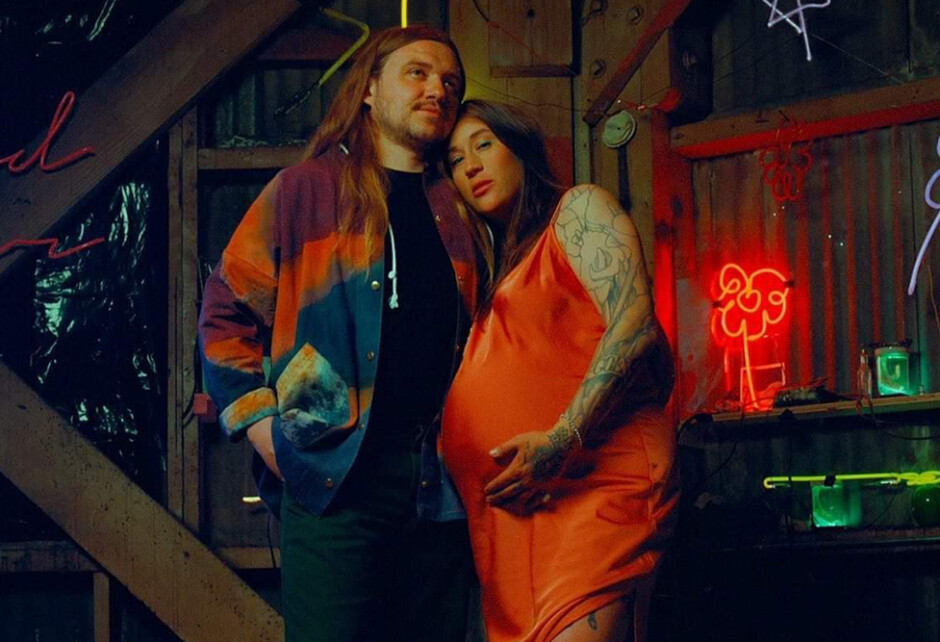
Talking To Kids About Death & Walking Them Through Grief
Written by Amanda Noell Stanley
Photography by Photographed by Studio Firma
I pulled my old Volvo into the driveway, the one I had driven back and forth to the hospital to visit my dad in the days after his heart surgery, a surgery that had gone well according to his doctors. It was just 5 a.m. when I emerged from the car to sneak back into my house, which I hoped would mean I’d have a couple of hours to figure out how I would tell my sons, 7 and 10, that their granddad had died early that morning. Two hours turned to two seconds when I saw my oldest son’s thick hair draped over the arm of his favorite chair in the living room. He sat up and looked at me with big, tired, wondering eyes. My husband, with whom I had shared the news quietly via text an hour earlier, kept his seat across the room on the couch.
I squished my body to fit in the armchair with the child that made me a mom, curled his feet onto my lap, put my hand on his head, and looked into his eyes.
“I just got back from grandma’s house. She called me to come over because grandaddy had fallen. The rescue squad came and tried to help him, but his heart quit working. Grandaddy died this morning, my sweet love.”
I could only rub his forehead once before he bolted from the chair and made a U-turn to the nearest bathroom. He threw up, flushed the toilet, wiped his mouth, and came back to me.
Yes, I thought. That is exactly how this feels.
I told him I was sorry. I told him I was so, so sad. I cried with him. I held him. And when his younger brother woke up, we told him together.
My father was not a far-away granddad to my kids. He and my mom lived just a six-minute drive from our house. He kept both of my kids when they were infants, when I returned to work but wasn’t yet ready to hand them over to daycare. He was the fun granddad who took them for rides in golf carts, gave them unapproved candy and sugary drinks, and bought remote control airplanes for them to fly. Later, he was the one who got them off the school bus, helped them with their first trick-or-treating, and taught them what a good steak really tasted like. They spent time with him almost every day.
Their love for him was more expansive than your standard mandatory familial connection. They adored him, perhaps because they knew they were adored by him. They didn’t know the stuff that made my dad less appealing—the alcoholism from which he was recovering, the choices he’d made that almost shattered our family years ago, the bridges he had burned. The feeling was mutual. It was for them, my dad told me on day one post-op, that he underwent surgery in the first place. He wanted to get his heart repaired so he could live longer with those boys.
Yet, here we were. No more grandaddy Jimmy.
I had grieved plenty of loss before my dad died. I had lost my brother, all of my grandparents, a few aunts and uncles, friends, pets. I had lost people to cancer and suicide and drunk driving and heart disease; had grappled with deaths that were expected and those that happened suddenly and to people far too young. This was the first time I had lost a parent, experiencing the complicated grief of shared, imperfect history with a new reality that no longer included their physical presence. And this was the first time I was grieving while also walking children through loss. This was new territory.
In the days after my father’s passing, we did some pretty standard, to-be-expected stuff: My husband and I took time off from work to help my mom with arrangements. The kids stayed home from school. We took naps when we got tired, which seemed to be every afternoon. We looked at the social media comments telling us how sorry everyone was and sharing stories about my dad. We talked a lot, especially at night before bed.
We talked about how his death happened—what he was doing, how his heart didn’t work just right, what the helpers did, why the police came, and why they took him to the hospital even though the doctors could no longer help him. We talked about our family’s tradition of funerals and visitations, why we have them, what we do at them. We talked about dad’s choice to be buried in a casket on the hillside near where he grew up. We talked about what we believed about how people keep living even after their bodies no longer have blood surging through them. They were amazed at the idea that once we die, we cannot die again—that once our bodies stop working, they can no longer get sick or injured or tired. They started imagining all the stunts they would try post-death knowing there’d be no risk, including jumping off of high mountains into distant lakes.
Then, we made things. We sat in my bed crafting gifts, something we could tuck into his casket to help send him away. I wrote him a letter. My oldest son wrote the funeral logistics down and explained how he would be there for all of it. My youngest son drew a fairly inaccurate picture of a bird’s eye view of the scene: my dad, in the floor of his bedroom, with blood splattered around him. He asked if it was OK to draw granddad’s tummy as big as it really was.
“Yes, son. It is OK to tell the truth, even about that.”
The funeral home provided a backpack full of resources for kids, including a hand-shaped cloth and some markers. On one side, my youngest son drew how he felt about his granddad’s death: a sad face with tears and a heart with a crack in it. On the other side, he drew my dad and how he was doing now: A happy face and a heart that had been stitched up and made whole. Five years later, he still has this in his room.
We gave our boys choice about their participation in the events that followed. Both attended the visitation. We opened the casket briefly so they could tuck their creations inside. I dotted lavender oil on my dad’s forehead – a place he said hurt really badly after his surgery. Then it remained closed the rest of the evening as hundreds of friends and family came through, pouring their love on us and sharing stories. My kids were well-loved that night, and we all went home tired. The next day, my oldest son attended the church service and graveside, keeping a sad, straight face the whole time. While I cried off and on throughout both ceremonies, he was as steady as my husband was, taking it all in, paying keen attention to everything.
Back at our home after it was all over, the support kept coming disguised as food and housekeeping chores provided by friends and neighbors. We took a few more days to settle in before we slowly re-joined regular life. But regular life had changed a lot. It no longer included unannounced visits from grandaddy Jimmy or seeing him in the front yard from the school bus window or the smell of him grilling steak on Sunday nights or his mischievous smile as he served candy for breakfast.
Grieving helps us patch the torn fabric between life before and after loss, sewing a blanket, thread by thread, that holds the mystery of liminal space: things as they used to be, and as they are now. We grieve with our whole selves: our hearts, our heads, and our hands; our feeling, our thinking, and our doing. Grieving has no end date. When you lose someone you love, every day after is just that—a day in the ‘after.’ So the stitching continues. You sing in your first school play and grandaddy isn’t in the audience. Stitch. You have your first girlfriend and grandaddy isn’t there to poke fun at you. Stitch. You go to camp and fly a remote control airplane and grandaddy won’t be home for you to share photos with when you return. Stitch, stitch, stitch.
We made it through. We didn’t get lost in our grief. We did the best we could to honor him and care for one another. That is as high a bar as one can set for loss.
When I look back at the experience, there were five things that helped us accept and work with our grief in ways that stitched our before and after lives together, and helped us heal. I share these five encouragements with my fellow moms as you walk your children through loss:
Be present for their experience. Being present means paying attention without judgement. It means staying with, even if sitting silently, rather than avoiding. If your kid vomits, you stay. If they make a drawing that is not all the way accurate, you stay. If they choose to attend, if they don’t. If they want to be glued to your leg, if they want to be alone. You stick with them.
Take time for your own grief. If their loss is also your loss, give yourself what you need to honor it. Pause to ask yourself what will help you that day, that hour, that moment. Rest? Give your kids to someone you trust and lay down for 30 minutes. Food? Ask a friend to pick up dinner and bring it. Help with logistics? Call a neighbor to come sit with you while you fill out the forms. When you need to cry, cry. It is OK for your kids to see you expressing sadness and surviving it.
Care for their heads, hearts, and hands. We experience loss with our whole selves, and our thoughts, actions, and feelings need attention. Talking about it helps. Expressing emotion helps. Making things helps. Depending on how you were raised, one or more of these may feel strange to you. That’s OK. Give your kids a chance at all three and see what happens.
Provide choice when you can. Could you let your children choose which parts of the traditions to attend? Could you let them choose the color of the outfit they wear? A song to sing or a picture to draw or a kind of food to eat? Could you let them design their own way of honoring the person they lost or help you come up with an invitation list for a special celebration of life? Providing choice gives a much-needed sense of power and agency in a time when everything seems out of control.
Keep the line open for as long as it takes. Grief comes in waves. When we are well-rested, we can withstand them. When we are not, that pain can come out as anger or anxiety or other hard-to-handle expressions. It can hurt us and our relationships. Let your kids know when you need space. Apologize when you yell about a small thing. Let them know it’s OK if a wave comes to them a month later, or in a year, or when they graduate college. You’ll be there like you’ve always been.
Amanda Noell Stanley is a mother to two and CEO to 200. Her career in the human services sector has focused on one goal: making sure everyone has a no-matter-what family, no matter what. Appointed by Virginia’s Governor to serve on the State Executive Council for children and recognized as a top 20 under 40 by Lynchburg Business Magazine, Amanda has been recognized for her innovative and compassionate leadership in the nonprofit sector. A writer and part-time leadership coach, her work has been featured on The Mighty, Jaden magazine, Hoot & Holler, and at her website.
Write a Comment
Share this story




Thank you so much for this beautiful reflection. I’ve been walking through deep grief with my two girls who just lost their uncle, my sister’s wonderful partner, very unexpectedly, and it’s been a rough ride. Your words have soothed and encouraged me to keep on keeping on – it’s a hard journey, but being present for each other’s pain and getting enough rest are vital. Grateful for what you’ve shared.
Sophie, thank you for reading and for sharing. I’m so sorry for your loss. Every single expression of love you’re showing your girls is helping them stitch through their grief. Good work, mama. Take care.
When searching my heart for the right words for someone, your article appeared like a beacon of light. People need to feel connected, loved, and need to hear that all manner of responses are 100 percent acceptable when tragedy strikes. Thank you.
Joy, thank you for reading and for your comments. You’re right – connection is everything in these moments, and no one gets to tell us how to grieve. There’s no right way. Sending light.
Dear Amanda,
This is so beautiful and I cried all the way through it. You described perfectly what I went through 9 years ago, with my children when I said goodbye to my Mom. I have yet to delete her phone number on my phone and am so blessed to still have my 90.5 year young Dad with me. As of 2 weeks ago, my three now adult children, found out that beside Parkinson’s their Dad has; he also been diagnosed with dementia. Though their Dad and I divorced over a decade ago, we continue to share the parenting and have a good relationship. They watched and walked with me when their Grandmother suffered the same disease that will now take their Father. Though they are now 33, 31 and 26; all that you have lovingly describe will happen to some degree all over again. Your incredible gift for sharing and writing is so appreciated. Thank you so very much.